Ward 2 Councilman Chokwe Lumumba, a longtime activist and attorney, wants to bring his experience as a human-rights organizer to the Jackson mayor’s race. Photo by Trip Burns.
Originally published April 3, 2013 at 4:17 p.m., updated May 1, 2013 at 4:33 p.m.
Editor's Note: Councilman Chokwe Lumumba died at the age of 66 on Feb. 25, 2014. Here is his JFP interview and other articles about his fascinating history in Jackson and as an activist attorney.
Audio clip
Chokwe Lumumba Endorsement Interview
JFP Interview with Chokwe Lumumba, 2009
Read Lumumba's cover interview when he ran for Jackson City Council in 2009.
In His Own Words: Lumumba Explains HIs 'Jackson-Kush Plan'
The month before the 2012 Democratic Primary, Lumumba talked to a national publication about his controversial plan for Jackson.
From 2004: Chokwe Lumumba v. Mississippi Bar
Read a 2004 JFP story about Chokwe Lumumba's battle with the Mississippi Bar, including several PDFs of legal documents.
The Jackson Plan
The Malcolm X Grassroots Movement developed a "plan" for several cities around the country. Read the Jackson Plan here.
Chokwe Lumumba first came to Jackson in the early 1970s as a civil-rights activist. He returned to Michigan shortly after to attend law school, returning to Mississippi in 1988.
He's been in Jackson ever since, and now he's running for mayor of the capital city.
If his views and policies don't set him apart, his name will stand out on the ballot. Lumumba chose the name--which he stresses is African, not Muslim--in the late 1960s.
"I picked the name Chokwe because in my African history class I learned that the Chokwe tribe, which is a tribe that still exists, was one of the last tribes to resist the slave trade successfully in northeast Angola," Lumumba told the Jackson Free Press. "The name literally means 'hunter.'
"The second name, Lumumba, was the name of a great African leader who began to lead Africa to decolonize, to independence. He was from the Congo. Lumumba means 'gifted.' So literally, it means 'gifted hunter.'"
When he was growing up, Lumumba felt close to the civil-rights conflicts in the South as the son of an Alabama-native mother. It didn't take long for him to join to fight for freedom, and he hasn't given it up, either. For more than 35 years, Lumumba has defended civil-rights cases in the courtroom and from the rally podium. He also helped start the New Afrikan People's Organization.
He helped defend Jamie and Gladys Scott, who received double life sentences for a 1993 armed robbery that netted anywhere from $11 to $200, depending on who was testifying. In December 2010, then-Gov. Haley Barbour suspended the sisters' sentences on the condition that Gladys donate a kidney to her sister. "We thanked him when he let them go," Lumumba said. "We're still trying to get them off parole. We haven't done that."
Lumumba has also represented rapper Tupac Shakur as well as Lance Parker, who was accused of trying to shoot the gas tank during the assault on a white trucker, Reginald Denny, during the 1991 Rodney King riots in Los Angeles. Lumumba, who won an acquittal for Parker, argued that his client discharged his weapon to aid Denny.
Lumumba has served one term as Jackson's Ward 2 city councilman. There, he has continued to fight for more minority representation on city contracts, and gladly reminds listeners that the city is between 75 and 80 percent black on a regular basis. The JFP sat down with Lumumba in his office on Mill Street to talk about his campaign for mayor.
What role did you play in forming the New Afrikan People's Organization?
I was one of the founders of the New Afrikan People's Organization. That was in 1984. I was involved in it in the city of Detroit. It was founded in three different locations: one was in Detroit, one was in Los Angeles and one was in New York.
What is the goal and purpose of that organization?
Basically: human rights for human beings, with the focus on trying to vindicate the oppression of black folks, trying to make sure that black people are put in a position for self-determination. When we say self-determination, what we mean is giving the opportunity to govern themselves commensurate with their numbers in the particular population.
What that means is that we feel that the thing that hurt us the most, in terms of the whole estrangement from Africa, the enslavement and middle passage, is not actually the specific experiences of slaves on middle passage, but the liquidation of our rights to self-government. We feel that any people, not just us--we support this for all people, in terms of self-determination--have to be given an opportunity to participate in self-governance, economic development, political development and things of that nature.
Some people have interpreted it to say that we're separatists or something. That is not the case. We've never been separatists, nor have we ever been segregationists. What we're saying is that whatever our numbers are in a particular population, we should be able to participate in governance commensurately with those numbers.
In areas that we are in the majority, we have to be able to maintain the majority of that responsibility. (We're) not trying to subjugate or discriminate against other people, because our highest goal is human rights. We're very tight in respect to the universal declaration of human rights.
What we want to do is do a better job than our predecessors in terms of those who control us, not turning the tables. We're trying to do a better job. We're trying to fight not just for a different complexion of people in office, but a better idea in office and things of that nature.
Didn't the Republic of New Afrika call for a separate black state?
The Republic of New Afrika advocated for an independent nation. That's different from a separate nation. Well, it's different in this respect: At no point in time did the Republic of New Afrika advocate for anything that was going to throw white people out or exclude white people....
My philosophy has always been human rights for human beings. To underscore that, I'm the one that helped sponsor the anti-racial profiling ordinance and that's going to help immigrants if we get it rightly enforced. Occupy Jackson was a predominantly white organized movement where they wanted to stay at Smith Park. I'm the one that spoke up for them, not quietly but publicly.
My First Encounter With Chokwe Lumumba
Soon after the JFP launched, Editor Donna Ladd tried to cover a rally for Chokwe Lumumba—where white media were not welcome.
We've heard you mention the percentage of African Americans in Jackson and wanting to see that percentage more in government. As mayor, how would you look to implement that belief, and would you use the belief in looking at hires for city jobs and city contracts?
What I'm looking for is the empowerment of the population of the 80 percent (African American population) that's there. As far as I'm concerned, I'm looking for the empowerment of all the population. You can check my background in terms of the cases I've had and causes I've championed. As far as that's concerned, there were a lot of poor white people, too.
It so happens that in the city of Jackson, except for the south side where you do have some poor white people who, I believe, are (of) modest income, for the most part, what we're greeted to on the northeast side are white people who are fairly well off. They are not really in the economically oppressed class.
What I am looking for is the empowerment of that population, the empowerment of the urban population, period. Black population is principal of that, because it's 85 percent of it, or 80 percent of it. What I'm looking for is we need that 85 percent to have jobs. We can never get it done if we have people who come in and give the black population 20 percent of the jobs, give another part of the population 60 percent of the jobs and another one 20 percent of the jobs. That's not going to work. ...
It's self-defeating, not only for the black population, but it's self-defeating for the city of Jackson. If most of your population is not enjoying the opportunity to get work, then of course, you're going to be a poor city. ...
If you're fighting to keep that 80 percent in peonage, then your whole state's going to be in peonage. You're going to have some rich people, but a good number of the white people are going to be poor. The black people are going to be poor. The state is going to be poor, relatively speaking, to other states.
That's what I don't want. Do I expect there to be white businesses and white jobs and plenty of them? Of course. Any of the white businessmen who have dealt with me can tell you that.
Give an example.
I have given a lot of the impetus for the Siemens (water and sewer improvement) project, for instance. Siemens came to me, for whatever reason, before they came into the city council, and before, I believe, they came to the (Johnson) administration. I can't speak to when they came to the administration, but it was at least a couple years before the city council actually got it. People brought Siemens to me to ask me what my view was in Siemens trying to get this (water) project.
They were trying to convince me there would be a lot of jobs available, and it would be good for the city. So what I did is, I told them what I tell everybody. I said, 'Yeah, we want your business. We need business here in the city. There are two things that I'd like to see. I'd like (commitment) to giving jobs to Jacksonians, and I'd like to see you committed to what we call the so-called minority level. That is, as far as your contractors and sub-contractors, a good portion of them are either black or Hispanic so other people have a chance to do these contracts years down the road, other than the small groups we have working them now.
Those are the two things I said. I thought (Siemens' officials) were genuine. I still think they're genuine, in terms of saying what they're going to do. If you look at what they've done, it's pretty representative.
That's the kind of stuff I'm talking about, OK? I'm not talking about cutting anybody out of this. Certainly, I'm not trying to exclude businesses, which would be profitable to Jacksonians from coming in.
I'm not just trying to get black people to come to this city. I think if we do what's supposed to be done in this city, the city is going to attract a lot of people, not only black and white, but globally. That's what happens to cities (that) really do well.
Go way back to Cairo, Egypt. Egypt used to be black, but it attracted cultures from everywhere. That's why it looks like it does now. The same thing with New York City.
That's what I want to see. I want to see an opportunity for us to advance immensely here in Jackson. I'm not going to be counting the number of blacks who walk through the door, or the number of Hispanics who walk through the door. Anybody that wants to get down with this process and really do it well, I'm down with them.
How, specifically, as mayor would you assure that when contractors come in that they do give jobs to Jacksonians and specifically to minority Jacksonians?
I think there are two ways. Number one, we're already supposed to have a policy that is supposed to encourage--and I'll have to revisit the policy--but last I heard, it was supposed to encourage 8 percent minority involvement. It's supposed to be a goal as opposed to a quota.
Lumumba's New 'Frontier'
Chokwe Lumumba has a fascinating, if controversial, history in Jackson and beyond.
8 percent?
I think it's 8 percent, the last I heard. Harvey (Johnson) says he strives for higher than that. I think that the actual, spoken policy is 8 percent, which is ridiculously low. I've thought about having an articulating policy that we can have agreed upon and approved by the City Council, hopefully, which would be larger than that.
First of all, I think we should have a goal. You really would have to talk about this in terms of a goal. You can't make it a quota. You want to have a goal of encouraging all businesses that come here to have more than 50 percent, or 60 percent of their employees be Jacksonians. You want at least 50 percent of their contractors and sub-contractors, except in special situations, to be minorities.
That's how we'll make it work. When these people employ more people from the city, that's going to increase the income in the city. They contract with more sub-contractors that reflect the population of the city, and other oppressed people who may not live in the city. They live around the city. If they do that, that's going to spread the skills pool, and the contractor pool, getting people where they can do projects big enough where they can get bonded, they can get insured. Then we can have a bigger pool of people participating. I believe the bigger the pool participating, the more the economy grows.
One of our problems right now is that even as far as black people are concerned, or minorities, (we're) building too small of a pool. If you keep shipping the same contracts to the same people, first of all, in many instances they're not really able to handle all the contracts. So what they do is go out and contract someone else the work that they're supposed to be doing, and it defeats the whole purpose to why you gave it to them in the first place.
By having those two things as goals--A, having those who you contract with having over 50 or 60 percent of their people from Jackson, and then having at least 50 percent of the sub-contractors being from the minority pool, and that includes women, Hispanics, blacks, and Asians and others--those two things, I think, would help economically help our population.
You seem to be suspicious of capitalistic enterprises. How will that affect your relationship to businesses and business groups in terms of attracting them Jackson?
We're in a transitional economy in many respects. Capitalism, at its rankest form, is not a humanistic economic system. It allows the most powerful to tear into the economic fabric of the least powerful. It allows people with big money to control people with no money, low money and small money in many ways including politically because the people with the money the determinant of who runs for office.
How receptive do you think white business owners and groups like Downtown Jackson Partners will be to your ideas?
I'm very much for the development of downtown, and I think it can be done together with outskirt areas: Highway 49, Medgar Evers. Highway 18. We need a frontage road on parts of I-20. The infrastructure areas planned for downtown need to be expanded beyond downtown.
You're not going to get any major department store to relocate in downtown, Jackson. It doesn't happen in other cities so why would it happen here? You're not going to get them in the big shopping centers like Metrocenter. They live on stretches like Lakeland Avenue, and that's why Rankin County is doing so well developing that stretch.
What about One Lake?
I think it's a good idea. We've got to develop waterfronts. Waterfronts are profitable all over the country, and sometimes the best aspects of the cities are right there on the waterfront so we've got to take advantage of that.
How do you plan to balance your work as a lawyer with your work as mayor?
I don't plan to have work as a lawyer. I can't do it. It's rough enough from the city council perspective.
It's time for me to move on from being a lawyer, anyway. I've been doing this thing since 1976. I feel about like Barry Sanders when he quit the Detroit Lions. I saw Barry at the airport and asked him, "Barry, man, we didn't want you to quit. We wanted you to stay." He said, "You don't think I've done enough?"
You don't lose as much as Sanders did in Detroit, either, do you?
Yeah, that's right. That is true. That is one of the considerations I had to have as far as deciding to run (for mayor). I had to make sure my son (Chokwe) was in a position where he could take over a lot of my responsibilities as far as my law firm is concerned. I can't do both. Those things are not compatible.
How did a lawyer from little old Jackson, Miss., get involved with all these high-profile cases and clients?
Because I was an activist first before I was a lawyer. I went all over the country helping in causes and demonstrations - students rights, prisoners' rights, women's rights. When you're involved in those struggles then you become a lawyer you're in high demand for people who have those kinds of cases. And for a time in my career, I was able to live off those kinds of cases where people were being politically or racially prosecuted, or being prosecuted because of gender.
As mayor, what would you do if someone sued the city of Jackson for police brutality? You've always been on the victim's side of those cases.
Well, first of all, I'm going to do a thorough investigation. If the police are responsible, we're going to have to settle. And this is going to be an incentive to make sure we have the right kind of police department. And sometimes the police aren't culpable, and I'm going to protect them. ...
Crime is like this: I'm in a unique position to understand people who have problems and people are marginal as far as crime is concerned. Our attack on them has to be get them a job, to reorient their values. You've got to reduce the pool of people who might become criminals ... that's going to be a joint effort with churches, people like me who ran basketball programs.
Secondly, we have to get them a job. Thirdly, we have say to those who continue to commit crimes that we're going to sit down at this table and make a promise: You're going to stop committing crimes, and I'm going to try my damnedest to get you a job, to create programs to get jobs, to encourage businesses to drop the "misdemeanor box" so you don't get dropped from the job because you have to check off that you've been convicted of a misdemeanor. What your promise is going to be is you're going to get out of the drug game, you're not going to break into people's homes. If you do that, you've breached our promise.
The city has a lot of contracts ahead of them, including approximately $400 million worth of work on the sewer system from the Environmental Protection Agency's consent decree. How, as mayor, would you look to fund that over the next couple of decades?
First of all, I think the Siemens contract addresses that in a small way. It's a way that we can increase the revenues from water, so we've got to look at that. We know that we've got to increase those revenues and use some of that money toward that.
The other thing is that we've got to get that (local option) sales tax through, or at least give the people a chance to vote on it. If the people don't want it, then of course they won't vote for it.
On the 1-percent sales tax situation, we just need to get it straight and, hopefully, shed that (oversight) commission. That's one of the ways that we're going to be looking at it. There are other companies out there that have lease-to-own programs in terms of repairing old water systems. What they do is, the city pays on it over a period of time, on a sort-of lease-to-own situation.
For instance, just a hypothetical, a company comes in, and they put in like $400 million of pipes and change the system around. They own it. What happens is (the city) begins to pay them back. So you're leasing it until you pay them back. That's a possibility.
We've got to investigate those. People came to me with those while I was on the council. I referred them to administration. For whatever reason, (administration) didn't use them. I'm not saying they should have. I don't know.
That's one of the problems, I think, with the present way that things are done. I should know, because I'm on the council, and we should be working on these things together, but I don't know. That kind of stuff is not shareable to me nor the other council members. I think the philosophy of how we deal with things economically lacks collectivity, which I think is not good.
I think that should we ever be placed in the situation that we were several years ago--remember when the water system broke down? We declared an emergency. I think the State declared an emergency too, for the Jackson area.
(U.S. Rep.) Bennie Thompson was head of the Homeland Security Committee at the time. I called Thompson and the mayor. I called Bennie first and asked if he would be receptive to hearing a request from us that the president declare a state of emergency for the state of Jackson, and give us some money. Bennie said, "Well, is Harvey going to ask for that?"
I called Harvey, and Harvey told me he didn't think we needed it. I disagree with that. If we have that opportunity again, at least go for it. Look for those types of opportunities, because that could have created a whole new day for Jackson. (I believe) $300 million is not all that much coming from the federal government, in terms of their contribution, but in terms of us receiving it, that's a lot of money. That gives you a whole new economic frontier.
That's the kind of thing that I'm certainly going to be looking out for. At the same time, the hard work of trying to get the sales-tax thing through is something we're going to have to do. I think that will generate a lot of income, if we can get it through.
How important is it to make Jackson a tourist destination?
It's important. That's a good question. I think it's important, because all major cities nowadays, maybe always, have used that as a portion of their economy. I don't think we should get beyond ourselves. I don't think we should be thinking of ourselves as a New Orleans, or (an) Orlando, Florida, or something like that. That's primarily what they are.
I think that we have to have industry. We have to produce something here. We've got to address the needs of people who live here, and not just think about bringing other people in. I think (tourism) is an important part. I believe that an important part of that is to do something with Farish Street. I think we've been hustled on Farish Street, but I don't know. Farish Street is an issue that's lasted a lot longer than me. I just got into public council in 2009.
What did you mean when you said we've been hustled?
Well, I think that the problem is that the Watkins Development group--that is supposed to have been doing the Farish Street thing--has not had the capacity to do it. Their lack of capacity has stymied us for a number of years in terms of getting it done.
Why have they lacked the capacity? It seems to me that they have been in a lot of different projects and playing with our money. Like the Standard Life building: The city sold that for a million dollars to David Watkins.
Then, we've got the Farish Street thing they're involved in. Later on, (Watkins) was involved in the Metro Retro project (to revitalize Metrocenter Mall). I'm not sure that David really ever had enough resources to do all those things. That's what I'm saying.
Maybe "hustled" is too strong of a word. I kind of think he was trying to get some money, at certain points of time, that some of the money he was trying to get for one project may have been going to another project. Apparently, according to what we've been told, he's had some success with the King Edward. I haven't heard much about the Standard Life, but I'm assuming he's had some success with that.
I think that, sometimes, you need to consider other sources, or at least it needs to be re-vetted. You can't just assume that because he's had two successful projects that the third one is going to be good, or the fourth one is going to be good. I don't think we did our due diligence in terms of the Farish Street project.
Is it time to look for another developer on Farish Street?
Yeah. Yeah. I think so. I think that we need to look for another developer. If the developers that have it now can jump up and say, "Look, we've got it. We've got the money. We can do it," then, of course, you don't put them out so they can never do it.
You've called for recruiting undocumented immigrants to Jackson to spur economy growth.
Yeah, I want them to become citizens because I think their blend into the political process as well as the economic process could be healthy for us. What we need here is a new culture. It's a new idea, a new way, a new justice frontier. We have not only a black culture, we have white people who have their culture. We have Hispanics. We have Asians. And something's going to happen as a result of that. Something always does when you have a new blend of people.
The question is it going to be something good or something bad? What we need is a new culture with new ideas that leads up to becoming a model city in the world.
You were in the hospital last year. Do you feel physically up to the task?
I had pneumonia last year. I feel great now. ... I'm going to get it accomplished. It was the first time in my life I came down with pneumonia, and pneumonia's rough. So I was in there... a week or two weeks?
No lingering problems that people should worry about?
No, nothing you should worry about. Win or lose, I'm going to be around a long time. But I'll tell you this: I don't intend to be in office for 12 years. I think that's too long. I have enough sense to realize that I'm not the answer to every question. The answer is developing a system and building new leadership. Part of my job is to address the problems of Jackson as best I can. The other part is to develop leadership for Jackson. In my administration, you're going to see a reflection of that in the types of people I hire - younger people, women. And we're going to make sure that it's an administration that forward looking and not backwards looking. I expect someone to come along that's greater than me, and if I don't do that, I haven't succeeded.
Is that what the Malcolm X Grassroots Movement's Jackson Plan is about?
Yeah, that's part of the Jackson Plan to develop a progressive leadership that's going move Jackson forward and make it a better place. (Another part of the Jackson plan) is to build Peoples' Assemblies all over not just Jackson but all over Mississippi where people will express their concerns to city, state and national governments and at the same time be able to learn more about what this organizations are doing.
Email R.L. Nave at [email protected]. See all mayoral interviews to date at jfp.ms/mayorsrace2013.
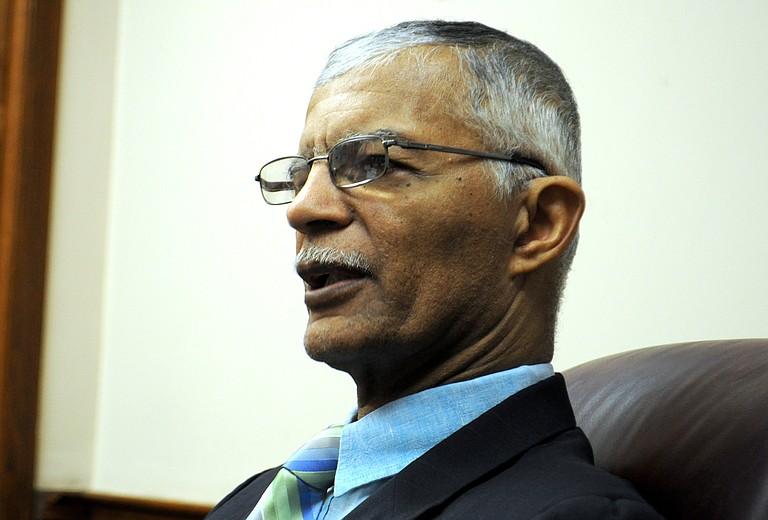
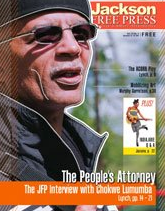

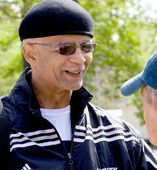
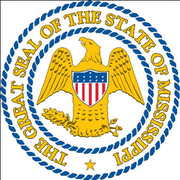
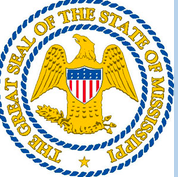
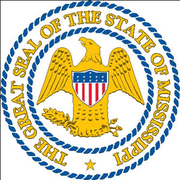
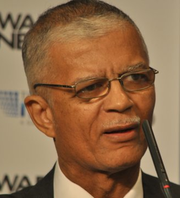


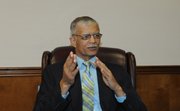
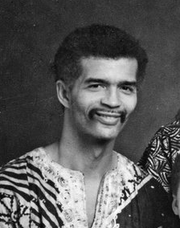
Comments
Knowledge06 11 years ago
Good interview!
blackwatch 11 years ago
Great Interview. Lumumba maybe too nationalist for the average Mississippian, even average Jacksonian, but his voice is necessary in the progress of the Jackson- metro area.
js1976 11 years ago
I would say Lumumba is to racist for the average Mississippian, even average American.
JLucas 11 years ago
Definitely an interesting interview. Lumumba appears to have a number of good ideas on what the city's priorities should be. Although I wouldn't vote for him, I think the next mayor should adopt a few of these positions.
Sign in to comment
Or login with:
OpenID